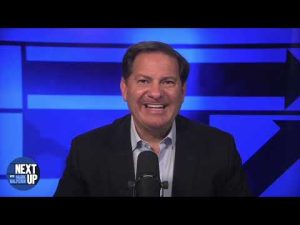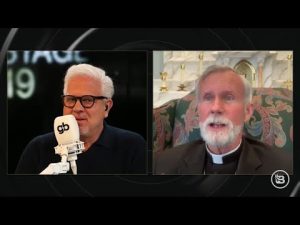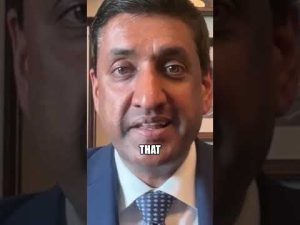In recent remarks, former President Trump demonstrated a style of leadership that some may call pragmatic centrism, a term that may sound complex but essentially means recognizing and stating what many Americans already know to be true. In this instance, Trump addressed a tragic shooting that involved the CEO of United Healthcare, pointing out an insight that most rational individuals share: violence is an unacceptable way to resolve disagreements, especially those related to business practices. This perspective, while seemingly straightforward, has heightened relevance in today’s increasingly polarized political landscape.
Trump’s comments underscore a fundamental principle: violence, in any form, is wrong. He emphasized that shooting someone in the back because of disagreement with their business decisions is not only deplorable but also indicative of a deeper societal sickness. This understanding resonates deeply with the American public. Most people know instinctively that harming others is not justification for any grievance—political or otherwise. Yet, the confusion arises when segments of society start to rationalize violence as a means of political expression. By labeling such behavior as “cold-blooded,” Trump is reinforcing the idea that old-fashioned values still hold sway among decent people.
The reaction to violence in today’s society has shifted unusually, with some individuals even admiring those who engage in these acts. This raises critical questions about social values and moral compasses. When a society begins to accept or glorify such behavior, it is not just an issue of individuals but an indication of a broader systemic problem. Trump’s comments serve as a wake-up call. He reminds citizens that not only is it acceptable to condone good behavior, but it is necessary to condemn actions that threaten the safety and well-being of others. This clarity is a reminder that common sense and decency should be guiding principles in any civilized society.
Critically, the former president’s ability to articulate these sentiments suggests that there are still those in leadership who can address these issues head-on without dancing around the subject. In a world where political correctness often stifles meaningful discourse, the candidness of Trump’s message strikes a chord. It invites reflection on what values we, as a society, choose to uphold. The reality is that most Americans do not celebrate violence; they seek to restore a sense of safety and normalcy to their communities.
Moreover, such discussions could pave the way for a potential shift in how political leaders approach sensitive topics. If more leaders adopted a straightforward approach like Trump’s, they might foster a stronger understanding among their constituents regarding what constitutes acceptable behavior. As society grapples with the ramifications of violence, clear communication about its unacceptability will be crucial. After all, if shooting someone in the back over business disputes is determined to be “bad,” it would be wise for everyone to remember that this idea is not just a conservative viewpoint but a universal truth—regardless of political affiliation.







